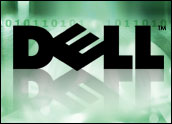
Leading computer maker Dell said it cut prices on a slew of technology items, from personal computers to servers, a move seen as a competitive thrust aimed at solidifying its growing presence in the enterprise.
Round Rock, Texas-based Dell said it was simply passing along savings it was seeing in computer components to its corporate customers. The price cuts affect everything from notebook and desktop PCs to workstations and certain enterprise servers, but are only applicable to U.S. business customers.
Dell said the fact that savings were being passed quickly on to customers was a reflection of its direct-sales business model, often hailed as one of the most lean and efficient in the industry. Analysts said the move would put pressure on rivals such as Hewlett-Packard to find a way to follow suit. Though it has seen improvement in recent quarters, HP has generally lagged behind Dell in cutting its costs and boosting profit margins.
“Our winning business model and direct relationship with customers allow us to pass these savings to them quickly,” Ro Parra, senior vice president and general manager for Dell Americas, said. “It is further validation that we are delivering the products customers need at tremendous value and continuing to focus our industry-leading customer satisfaction, growth and shareholder value.”
For Business Only
Higher-end products saw the steepest cuts. The PowerEdge 4600 dual-processor server, which comes loaded with two Intel Pentium 4 chips and processors and four hard drives, had its price tag slashed 22 percent to US$4,194.
Precision workstations were cut in price by up to $460, and Dell OptiPlex desktops were lowered by $100. Certain Latitude notebook configurations had their prices cut up to $220, with memory upgrades on new machines also cut in price. Prices for flat panel monitors, when bought as part of a desktop system, were also reduced.
Dell spokesman Bob Kaufman said there are no immediate plans to introduce similar cuts for consumer products, which make up only about 15 percent of Dell revenues, but noted that those products are priced competitively. Sales to businesses and institutions of all sizes makes up 85 percent of Dell sales revenue.
“Our consumer customers typically benefit from the best value in the industry,” Kaufman said.
Kaufman indicated the price cuts would not impact Dell’s forecast for the fourth quarter, which calls for revenues of about $13.5 billion, which would represent a 17 percent increase over last year. Profits are expected to be up 24 percent year-to-year, he added.
Analysts said Dell would make the move only if it felt comfortable that it could maintain healthy enough margins to keep investors happy.
War or Skirmish?
While HP and IBM are well positioned to use their market size to compete with Dell, their healthy profit margins are what could be at stake if a price war breaks out, Gartner analyst John Enck said.
High-end servers and related products, including workstations, often carry a premium price tag because they come backed with the reputation of an IBM or HP and are typically sold as part of a larger IT placement that has strategic components.
“IBM doesn’t want to see sharp discounts become the norm,” Enck said. He added that the duraton of the discounts will be important to watch and said that the other computer makers are likely seeing similar cost savings they could pass on.
Dell has been aggressive in its bids to expand its base of revenue, moving into the blade server market about two years ago and more recently introducing another line targeted at the same market but with lower price tags.
Dell has also moved into peripherals, selling a line of Dell-branded printers and other accessories.
Timing Eyed
The timing of the move also led to speculation about what might be behind them. The cuts were announced just a few days after reports began circulating that IBM would exit the PC business by selling its computer-making unit, possibly to a China-based PC company that could pose a price threat to Dell and other U.S.-based companies.
Speculation cranked up another notch today after Chinese computer maker Lenovo confirmed that it was in acquisition talks with a “major technology company.”
Though it has quickly become a trusted name among enterprise IT buyers, Dell still lags on sales of high-end servers and other corporate gear. IDC recently reported that Dell was tied with Sun Microsystems for third place in worldwide market share, behind both IBM, which leads with nearly 32 percent market share, and HP.
With sales currently strong in the sector, Dell might be trying to strike while the iron is hot. IDC analyst Matt Eastwood said sales rose 5.5 percent in the third quarter, while the number of units shipped grew 18.7 percent.
“IT spending remains strong,” Eastwood said. “Customers are refreshing and expanding their IT infrastructures. There is a lot of replacement and streamlining purchasing, but also a good deal of strategic initiatives that require heavy new investments.”






















































Social Media
See all Social Media